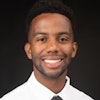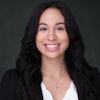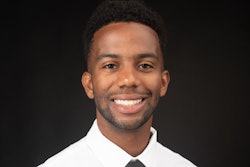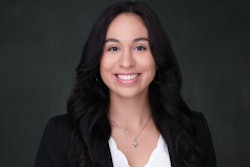Iowa native Juana D. Hollingsworth had always dreamed of attending an historically Black college and university (HBCU). She saw what it could be like through movies and television and she wanted that experience.
Though she grew up in a primarily Black community, spending her life in a mostly white state left her with few options nearby to pursue that desire.
“With Iowa being a predominantly white state, I had limited options of a diverse experience growing up into my college and postsecondary education,” Hollingsworth says. “I did not have that opportunity to go to a Black college for my undergrad because the closest one is in, like, St. Louis, six hours away. It really wasn’t attainable, being an out-of-state student [and] living far away.”
Hollingsworth ended up attending and getting her bachelor’s and master’s degrees in social work from the University of Northern Iowa, which has a relatively small Black population.
For her Ph.D., she decided it was time to take the leap. With her dream in sight, she started pursuing a doctorate in higher education administration in 2020 at Baltimore’s Morgan State University, an HBCU.
Hollingsworth – who has also taught and advised students at Johns Hopkins University – anticipates that she’ll graduate next May.
The research she’s been doing at Morgan State has to do with her time at her alma mater, where she had gone the extra mile to make the school more welcoming for her and other Black and Brown students.
“Through that work, I noticed we were really in the thick of it, in the weeds of ensuring that Black students at our campus felt welcome and had safe spaces for us that were culturally relevant,” says Hollingsworth. “[At Homecoming], they aren’t playing hip-hop or rap music that is relevant to our culture, so we would have to have our own events to feel that cultural connection to our campus.”
Years later, she says she understands that what she was doing has a name. It’s called Black space-making.
It’s where predominantly white institutions (PWIs) – due to their negligence, conscious or otherwise – center “whiteness” in the campus activities they offer, the music they play, the food they serve, and the artists they hire, Hollingsworth says. This leaves minority students to have to create “counter-spaces of community,” for themselves, on their own.
Hollingsworth’s dissertation directly examines this ongoing phenomenon, focusing particularly on the experiences of Black women students leading Black student union chapters at PWIs, says the Ph.D. candidate. She’s investigating what this kind of work looks like and what it costs, both in time and money.
“I’m specifically looking at it though from a racialized equity labor lens, stating that Black and Brown students are exerting energy based on race, based on the negligence of the university,” she says. “Technically, universities have commitments [to serve all students and make all students feel welcome].”
Dr. Virginia Byrne, the Morgan State assistant professor of higher education and student affairs who nominated Hollingsworth, said the Ph.D. candidate’s research topic was “at the cutting edge of how we think about college students doing community-building work.”
“We know that this community-building is essential for student support, success, and happiness,” Byrne says. “And when the university can’t provide that to students, the students are stepping up to do it themselves. That’s a lot of labor to ask of students, unpaid.”
Hollingsworth’s career in higher ed has already been extensive. Some of the roles she’s previously held include orientation leader, graduate assistant for campus events, and assistant director of diversity recruitment at the University of Northern Iowa; graduate research assistant for the Diversity Across the Curriculum Project at Eastern Virginia Medical School; and senior academic adviser at Johns Hopkins’s Krieger School of Arts and Sciences.
After she receives her Ph.D., Hollingsworth hopes that she’ll find a career where she can be both “researcher and practitioner,” where she can both teach and carry out administrative duties, she says.















